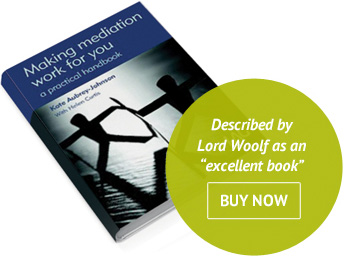BLOG
Mediation – a comparative Review
July 31, 2019
The Scottish Government – Judicial Analytical Services specifically – has undertaken a Review of evidence on mediation in civil justice systems from USA and Canada to Australia via Ireland, England and Wales. The purpose was to better understand the ‘international landscape of mediation, its operation and effectiveness’. Co-incidentally or not, there is now a proposed Mediation (Scotland) Bill 2019 on which consultation responses are invited via a survey by 20 August.
The Review contains a number of comparisons only some of which are considered below:-
- whether mediation is regulated by statute
- whether mediation is voluntary or mandatory
- whether mediation is regulated
- the uptake of mediation
- settlement rates
It seems that England and Wales is the only jurisdiction among those considered where there is an absence of statute for mediation. Interestingly, the view in Australia was that mediation would not have grown without the legislative foundation but in USA, the use of mediation had to grow and be acccepted before it compelled the enactment of legislation.
The recurring question as to voluntary/mandatory reveals that while there are gradations of mandatoriness, mediation is mandatory in Australia (in NSW, parties can be compelled to enter mediation with or without consent) and voluntary in Ireland as enshrined by statute. There is a tendency towards ‘opt out’ schemes in Canada and USA with judicial encouragement and/or direction to mediate depending on which state or province the court is in and whether one party wants to mediate ie in British Columbia if one party seeks to mediate, the other is compelled to try. The use of cost sanctions in England and Wales where mediation is voluntary, is identified as the manner by which parties are incentivised to mediate.
Strong regulation of mediation was noted in Florida, where the Review found a full system of court connected committees in place overseeing the continuous review and improvement of mediation, its ethics, mediator training and a complaints committee. In other jurisdictions, standard setting, best practice and guidelines are signed up to voluntarily. Experience as a mediator with a developed skill set to understand participants was identified as key in making mediation effective.
The evidence in the Review demonstrates that the uptake of mediation may be encouraged through some level of mandatory process and through the use of low fee or free services. Unsurprisingly where mediation is mandatory the uptake is higher than where it is not. However according to the Review, that does not have a direct correlation with customer satisfaction and further research is required to understand what factors encourage engagement with mediation.
Finally, there is no table available which states which jurisdiction has the higher or lower settlement rate: settlement rates vary within each jurisdiction as well as compared with each other. Significantly the informants in the Review observed that the particpants’ satisfaction may still be high even though the dispute did not settle. The quality of the mediation process was a significant factor with the experience of the mediator’s skill set in understanding the participants and delivering a fair process featured highly. More research is needed to measure satisfaction with mediation compared with the trial process.
Scotland therefore has information from which it can assess what process would suit it best if the consultation process ultimately concludes that the experience of civil justice users would be enhanced by the availability of effective mediation. In January 2019 the Civil Justice Council for England and Wales published its recommendations for encouraging the use of ADR and David Watkinson considered that report in his blog.

